NFL Nation reporters assess the biggest injuries across the league for Week 9.
Scan through all 32 teams by division, or click here to jump ahead to your favorite team:
AFC EAST

Bills QB Derek Anderson did not practice Wednesday and remained in the concussion protocol. Coach Sean McDermott said he was “just going to take it one day at a time right now” with Anderson and did not give a deadline for Anderson to be cleared from the concussion protocol in order to start. If he cannot play, Nathan Peterman will start at quarterback with Matt Barkley, signed Wednesday, as his backup. — Mike Rodak
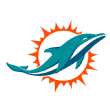
Ryan Tannehill has been ruled out, so Brock Osweiler will start at QB for the fourth consecutive game. The most notable injury question surrounds receiver Kenny Stills, who missed the previous game with a groin injury. Stills didn’t practice Wednesday, but he was in uniform and working off to the side with trainers for the first time. Head coach Adam Gase said Stills is trying to convince them that he’s ready to go, but he’ll likely need to practice to play. Miami is light on receivers, so they could use his contribution, and this looks like it could come down to a game-time decision if Stills can progress and practice one day this week. — Cameron Wolfe
2 Related

Starting right guard Shaq Mason, who was knocked out of Monday’s win over the Bills with a calf injury, didn’t participate in Wednesday’s walkthrough. He’s arguably the team’s best offensive lineman, and if he isn’t available for Sunday’s game against the Packers, the team would turn to Ted Karras. Offensive line coach Dante Scarnecchia said that Karras played well in his emergency duty on Monday. Meanwhile, WR Julian Edelman’s status bears watching, as the combination of an ankle injury and illness kept him off the field and out of most team meetings Wednesday. — Mike Reiss

The Jets’ top wide receivers, Quincy Enunwa and Robby Anderson, didn’t practice Wednesday because of ankle injuries. That means QB Sam Darnold could have another skeleton receiving corps when he faces the Dolphins. Enunwa, sidelined two games, is closer to returning than Anderson (one game). Enunwa participated in individual drills, a sign he might soon be ready to return to practice. In the meantime, the top receivers are Jermaine Kearse, Andre Roberts and rookie Deontay Burnett. — Rich Cimini
AFC NORTH

Three offensive line starters and one reserve — left tackle Ronnie Stanley, left guard Alex Lewis, right tackle James Hurst and backup Bradley Bozeman — didn’t practice Wednesday. The biggest concern is Stanley. If he is sidelined along with Hurst, the Ravens would likely start Jermaine Eluemunor, who has been on the practice squad for most of the season. This will be a problem against the Steelers, who are tied for second in the NFL with 24 sacks. — Jamison Hensley

A.J. Green was seen in a walking boot in the locker room after injuring his toe against the Buccaneers. Although Green said he was fine after the game, it will be something to watch over the coming weeks. The Bengals are on their bye week, and he’ll get some extra time to heal, but a game against the Saints looms after that. — Katherine Terrell
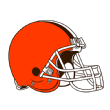
Cornerback E.J. Gaines was cleared from concussion protocol and was back on the practice field Wednesday. Gaines started two games after Terrance Mitchell broke a bone in his wrist but missed two games with the concussion. That forced the Browns to move Damarious Randall from safety to corner. With Gaines back, Randall could return to his deep safety role. — Pat McManamon

The Steelers will closely monitor the left index finger of quarterback Ben Roethlisberger, who injured his non-throwing hand in last week’s win over the Browns. Roethlisberger missed Wednesday’s practice, which isn’t unusual for him. He typically rests on Wednesdays. Roethlisberger could wear a glove to protect the finger as he practices later in the week. He’s playing Sunday against the Ravens. — Jeremy Fowler
AFC SOUTH
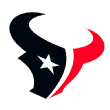
Second-year running back D’Onta Foreman, who has been on the PUP list since the start of training camp while he recovers from a torn Achilles tendon, has still not been added to the active roster. On Wednesday, head coach Bill O’Brien said Houston “more than likely” will start the 21-day window to activate him after the bye week. — Sarah Barshop
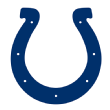
Safety Malik Hooker missed the Colts’ Week 8 game at Oakland with a hip injury. Hooker’s injury became even more important when Mike Mitchell, who started in Hooker’s place against the Raiders, left the game with a calf injury. Mitchell was signed after Mathias Farley was placed on injured reserve with a hamstring injury. — Mike Wells
![]()
Catch up on what’s happening coming out of Week 8:
• Trade deadline winners and losers »
• Trade tracker: Reaction to each deal
• Power Rankings: 32 scary trends »
• 13 candidates to coach Browns next »
• Week 8 takeaways for every matchup »
• Best and worst QBs of Week 8 »
More NFL coverage »
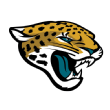
Blake Bortles has an injury to his non-throwing shoulder, and the team brought in Landry Jones as insurance. The Jaguars are off this week, and it’s hard to see Bortles not playing against Indianapolis on Nov. 11. He played part of the 2016 season and all of the 2017 season with ligament damage in his right (throwing) wrist. For all his faults, Bortles is a tough kid, and it will take a pretty major injury for him to not play. Cody Kessler would start if that were to be the case, and Jones would be the backup. The Jaguars has space on their roster to add Jones because they traded DE Dante Fowler Jr. on Thursday. — Michael DiRocco
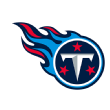
Right guard Josh Kline had to come out late in the fourth quarter of the Titans’ Week 7 game due to an undisclosed injury. Kline didn’t practice when the team returned to work on Tuesday. Coach Mike Vrabel wouldn’t say what Kline’s injury was or if he’ll miss more practice time. Safety Kenny Vaccaro took part in practice on Tuesday. He sustained a dislocated elbow in Week 4 that caused him to miss three weeks. Vaccaro was able to extend his right arm to catch the ball during defensive backs drills and appears on track to play on Monday night. — Turron Davenport
AFC WEST

The Broncos certainly have their eye on running back Royce Freeman’s health, as he hasn’t practiced since suffering an ankle injury in the team’s Week 7 win over the Cardinals. But fellow rookie Phillip Lindsay and Devontae Booker alleviate some of the concerns about Freeman’s recovery. The secondary is another matter, however, given that two starters — safety Darian Stewart (neck/stingers) and cornerback Bradley Roby (ankle) — have not practiced this week. The Broncos will face Texans quarterback Deshaun Watson this weekend as well as receivers DeAndre Hopkins and former Bronco Demaryius Thomas (traded to Houston on Tuesday). Roby’s injury could put Tramaine Brock in the starting lineup and put Adam Jones into the dime package when the Broncos go with six defensive backs. The Broncos do expect safety Su’a Cravens, who has been on injured reserve since the start of the regular season, to be in the lineup this week. Cravens would help in some of the specialty packages in terms of coverage of opposing tight ends. — Jeff Legwold
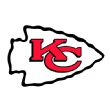
The Chiefs began their practice week without inside linebacker Anthony Hitchens, who has bruised ribs. He could play Sunday against the Browns, but his loss would be considerable if he can’t play. Hitchens calls the defensive signals, so the Chiefs would need to shift that responsibility to another player. His backup is undrafted rookie Ben Niemann, who played well during the preseason but doesn’t have Hitchens’ experience. — Adam Teicher
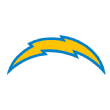
Running back Melvin Gordon was a limited participant Wednesday with a hamstring issue that forced the Wisconsin product to miss his team’s win over the Titans two weeks ago in London. If Gordon continues to practice this week, Chargers head coach Anthony Lynn is hopeful that he can make it onto the field on Sunday against the Seahawks. — Eric D. Williams
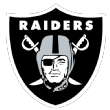
As the Raiders continue their deconstruction and reconstruction under Jon Gruden, one of those seeming foundation pieces remains hobbled. Pro Bowl left guard Kelechi Osemele has not played since Sept. 30 with a right knee injury, and the Raiders are unsure if he will miss his fourth straight game, plus the bye, on Thursday at the 49ers. “We are trying to get the big man back as soon as possible,” Raiders coach Jon Gruden said. “I think he’s a difference-maker in the NFL. We will see what happens. We will get him out there early in pregame and see if he is ready to go.” Jon Feliciano played well in Osemele’s absence in last week’s loss to the Colts. — Paul Gutierrez
NFC EAST

The Cowboys are coming off their bye week and did not practice Wednesday, but the belief is the extra time will allow defensive end Randy Gregory to play at least a little against Tennessee following knee surgery last week. Against a mobile quarterback such as Marcus Mariota, having Gregory in the pass-rush rotation will help. Wide receiver Tavon Austin will not play because of a groin injury, and he is looking at a long-term absence. The time off also allowed quarterback Dak Prescott to rest up. He took some big hits against Washington, including getting checked for a concussion, and was sore last week. — Todd Archer

The extra time of the bye week should benefit starting middle linebacker Alec Ogletree. He injured his hamstring in the Giants’ Monday night loss to the Falcons in Week 7 and missed Sunday’s loss to the Redskins. But Ogletree was doing some stretching and light work last week. With extra time to get healthy, he should be back when the Giants play the San Francisco 49ers a week from Monday. — Jordan Raanan
![]()
• How fates of Koetter, Winston are tied
• Ugly numbers behind Giants’ offensive woes
• How Cooper’s presence can help Cowboys
• Saints are ‘here for all the smoke’
• Much work remains for Shanahan, Lynch

The Eagles could be getting some players back after the bye. Two names to keep an eye on: RB Darren Sproles, out since Week 1 with a hamstring injury, and DT Tim Jernigan, who hasn’t played this season following surgery to repair a herniated disc. Both appear to be inching closer to a return. — Tim McManus

The Redskins have several key players dealing with injuries, including running back Chris Thompson (rib) and left tackle Trent Williams (dislocated thumb). Thompson said he’s “day-to-day,” but at this point that day might not be for another week. Williams has played hurt quite often, but he expressed concern after the game about his availability for Sunday’s game against Atlanta. The hard part is being able to use his hands. Meanwhile, corner Quinton Dunbar (hamstring/shin) returned, and there’s optimism that he’ll play Sunday. Safety Montae Nicholson underwent a procedure on his hip, coach Jay Gruden said, but there’s still a chance he’ll play. — John Keim
NFC NORTH

Bears head coach Matt Nagy said the team will continue to take a cautious approach with linebacker Khalil Mack (right ankle) and wide receiver Allen Robinson (groin). The plan is for both players to rest most of the week and return to practice on a limited basis Friday, but it’s still unclear if either will be active for Sunday’s game at Buffalo. Nagy called right guard Kyle Long “week to week” with tendon damage in his right foot, adding that the team has not ruled out placing him on injured reserve. — Jeff Dickerson
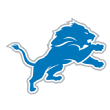
While all Lions players practiced in at least a limited fashion Wednesday, two are going to be worth monitoring this week: RB Theo Riddick (knee) and DE Ezekiel Ansah (shoulder). Ansah has been a weeks-long will-he/won’t-he situation, and on Monday, Matt Patricia explained that for a guy such as Ansah, there needs to be a ramp-up to game shape because he has been out since Week 1. If he ends up practicing in full for any of the three workouts this week, that would be a good sign. That Riddick was back and dressed is also a good sign for the running back, who still has a role as a third-down and two-minute-drill pass-catcher. Both players would make an impact if they can return against the Vikings on Sunday. — Michael Rothstein
2 Related
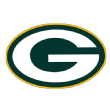
All eyes were on the safety position after Ha Ha Clinton-Dix was traded Tuesday, and one of the potential replacements, Jermaine Whitehead, did not practice. He dropped out late in Sunday’s loss to the Rams with a back injury. The only other player who didn’t practice on Wednesday was linebacker Nick Perry (ankle). Even Aaron Rodgers made an appearance (albeit limited), marking the first time he has participated in a Wednesday practice since his Week 1 injury. He had been getting treatment during the first practice of the week. — Rob Demovsky

Dalvin Cook (hamstring) returned to practice on a limited basis Wednesday, as did Xavier Rhodes (foot), Andrew Sendejo (groin) and Riley Reiff (foot); all four players did not play against the Saints. Linval Joseph (ankle/knee) was limited. It remains to be seen how much any of these players might be able to play against the Lions, but the good news is the bye is only a week away. Stefon Diggs sustained an injury to his ribs against the Saints and was one of four who did not practice, along with Anthony Barr (hamstring), Tom Compton (knee) and Roc Thomas (hamstring). — Courtney Cronin
NFC SOUTH
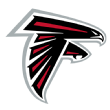
Starting cornerback Robert Alford missed practice Wednesday with an ankle injury and didn’t exactly look like a guy ready to run full-speed anytime soon. If Alford is unable to go Sunday, then the Falcons would have to go with rookie Isaiah Oliver in the starting lineup. Defensive coordinator Marquand Manuel is confident in Oliver, if needed. “He has to be prepared as a professional to go in and dominate his role,” Manuel said of Oliver. — Vaughn McClure
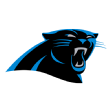
Quarterback Cam Newton was limited Wednesday, as he was last week Wednesday through Friday, as part of maintenance on his sore right shoulder, for which he underwent surgery during the 2017 offseason. But there is no concern that it will be an issue Sunday. Wide receiver Torrey Smith’s knee is another thing. Smith has not practiced since he went down hard on his knee against Philadelphia a week and a half ago. — David Newton

Just when rookie DE Marcus Davenport was coming on strong with two sacks in Week 8, he suffered a toe injury that left him in a walking boot Wednesday and will likely keep him out Sunday against the Rams — and possibly longer. The Saints have a reliable alternative in veteran Alex Okafor, who was splitting time equally with Davenport. But obviously, they like to rotate bodies there, and Davenport added some much-needed juice. The Saints’ pass defense needs all the disruption it can get up front since it still ranks among the bottom five in the NFL in most categories. — Mike Triplett
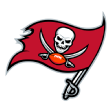
The Bucs have a ton of new injuries. Although they might get defensive tackle Gerald McCoy back from a calf injury, wideout Mike Evans missed Wednesday’s practice with a knee injury. So did defensive end Jason Pierre-Paul, who has injured his ribs and his foot, and right tackle Demar Dotson, who has knee and shoulder injuries. The most serious injuries are to cornerback M.J. Stewart, who has a cast on his foot, and running back Ronald Jones, who is expected to miss a few weeks with a hamstring injury. Vinny Curry had his boot removed from his ankle last week and has returned to practice on a limited basis. — Jenna Laine
NFC WEST
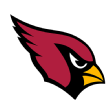
With the Cardinals on a bye, they have an opportunity to get healthy before their second half begins. The two most important players they need to get healthy are right guard Justin Pugh and safety Tre Boston. Otherwise, the Cardinals are healthy heading into the bye. — Josh Weinfuss

The Rams expect receiver Cooper Kupp to return Sunday against the Saints. Kupp has been sidelined since the second half of a Week 6 victory over the Broncos because of a knee sprain. “He’s attacked his rehab just like I know we all anticipated he would, made a good recovery,” Sean McVay said. “I think if we really wanted to press it, he probably could’ve played last week.” — Lindsey Thiry
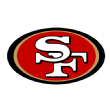
Per usual, the Niners have more than their share of injury questions, and that’s even more pronounced heading into Thursday night’s game against Oakland. The spot with the most intrigue is quarterback, where C.J. Beathard is dealing with an injured right (throwing) wrist and thumb. Coach Kyle Shanahan said Beathard likely would have been able to play had it been a regular week, but Beathard is listed as questionable, and the 49ers won’t know if he’ll be able to play until closer to game time. If he isn’t, it means Nick Mullens will get the start and take his first snap in a regular-season NFL game. The 49ers will also be missing starting linebacker Reuben Foster (hamstring) and strong safety Jaquiski Tartt (shoulder). — Nick Wagoner
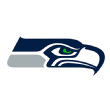
The Seahawks’ recent run of good health continued when they made it out of their win over Detroit without suffering any significant injuries. Pete Carroll said linebacker K.J. Wright and tight end Ed Dickson didn’t have any issues while making their season debuts. The Seahawks could get another player back this week in rookie defensive end Rasheem Green, who missed the past four games with an ankle injury. It seems likely that he’ll be available Sunday against the Chargers, with Carroll saying he was “all but ready” to play against Detroit, but the team decided to give him one more week. — Brady Henderson
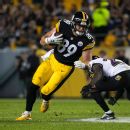






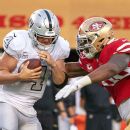
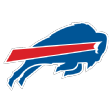


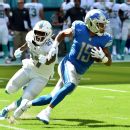
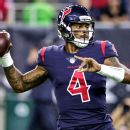


















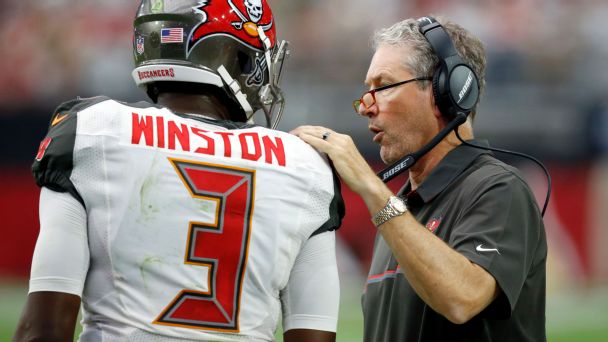














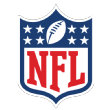
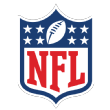 Here’s what went down at the 2018 deadline:
Here’s what went down at the 2018 deadline: